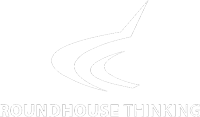Your Biggest Asset? Your Employees
Training your employees is essential to the achievements of any business. As the commercial world is constantly evolving, businesses are required to keep up-to-date with the latest developments in order to maximise productivity and retain customers.
Training isn’t just about showing employees how to complete tasks, it goes much further than this. It also involves increasing the knowledge of individuals and showing people how to apply this effectively and consistently within the workplace.
Below are just some of the reasons to take on development initiatives:
• Training and personal development increases staff retention, helping you to keep hold of your existing employees
• Having highly skilled, knowledgeable employees can help your organisation deliver higher levels of customer satisfaction, ultimately boosting your reputation and helping to secure greater customer retention
• Whether it is training, methods of working or legislation – things continuously change in the work place, so ensure you keep up-to-date
• Training gives employees the necessary skills and knowledge to carry out their work to the best of their ability, increasing productivity and quality of work
• Internal training creates a focused environment which enables discussions centred on specific examples and best practice within your organisation. It also strengthens internal relationships
• Training increases the well-being of employees and reduces absence, mistakes and stress
• Demonstrate a commitment to staff and invest in them. After all, your staff are ultimately what makes your organisation. Remember that it’s also far more economical to train your existing staff than it is to let them go.
Follow @RHThinking for more helpful tips!
Coaching for High Performance
Coaching for high performance is about helping people reach their full potential. This means working with people to improve their overall performance at work and achieve their goals and aspirations.
Coaching is incredibly important and involves working with people at every layer of the business in order to help reach their full potential. High performance coaching gives people the time to reflect and acknowledge their motivation and overcome the interference that may be holding them back. It is also invaluable for managers to evaluate an employee’s aspirations and ultimately improve productivity.
Coaching particularly helps and highlights the following;
• Navigating a career change. An example of a career change could be the transition from being a manager to being seen as a leader – someone who offers clear guidance, motivation and inspiration. Coaching can help assist people in reaching their aspirations
• Changes to performance or behaviour. Breaking bad habits and relearning skills is something coaching and mentoring can consistently monitor and improve
• High performance coaching can often help people recover from major business or personal setbacks such as work-life imbalances and stress
• Evidence shows that people who have clear plans and goals for the future are more likely to be successful long term, therefore creating these with guidance is a huge benefit.
Benefits are not only seen by the individual being coached but ultimately apply to the business. Improvement in an individual’s performance will only enhance productivity and by highlighting personal learning and development, this will increase an individual’s awareness. Coaching also gives a person time to reflect and discuss their aspirations allowing for solutions to be identified regarding specific work-related issues.
The GROW model.
GROW, an acronym for Goals, Reality, Options and Will which highlights the four key steps of this model used often for coaching. By applying these four stages, this model is able to raise an individual’s awareness and understanding of the following;
• Individual aspirations
• Current situation
• The possibilities and resources available to them
• The goals they want to achieve.
By setting achievable goals, that are both challenging and measurable, this model aims to instil confidence, leading to increased self-motivation and assurance, creating personal satisfaction.
Build rapport.
Rapport is a definite requirement in the coaching relationship. The more rapport the better. Without this, it can end up being a very flat meeting with no genuine intent or purpose. The more time spent developing a coaching relationship, the more honest the speaker will be, leading to a more natural conversation like session.
Exercise active listening.
Give the speaker your attention and acknowledge what they are saying. This can be done simply by maintaining eye contact and not getting distracted. Ensure you also use positive body language and gestures such as nodding, smiling and note your posture, ensuring that this is always open and inviting.
Understand and clarify.
Reflect on what has been said. It’s sometimes easy for our assumptions and judgments to come into play, however steer clear as your role in this instance is to ultimately understand what is being said. Ask questions to clarify certain points and summarise what has been said in order to gain a clearer understanding. This will also allow the speaker to reiterate their point.
Remember not to interrupt when the speaker is speaking. Before asking questions, allow the speaker to finish each point before asking the next question. By interrupting, you may risk missing important information or the speaker may feel rushed or uncomfortable and you may also limit your full understanding.
Manage your response.
Your response ultimately determines how the speaker feels within the coaching relationship. Active listening is very much required to gain respect and a full understanding on the perspective being given. Be open and honest in your response and give your opinions respectfully. Remember to treat the speaker in a way that you would want to be treated. It often takes a lot for a person to open up so ensure you treat a coaching session with respect.
Follow @RHThinking for more helpful tips!
When we think of New Year, often one word springs to mind... resolutions. Whether you’re a fan or not, New Year is a great time to reflect on your personal goals and achievements and plan your success for the future.
Self-improvement or at least the desire to, is something we often experience as we approach New Year. However, for all the good intentions we have, only a tiny proportion of people achieve their New Year’s resolution.
Goal setting is incredibly important, however we usually aren’t good at this, especially around New Year. Some people are often overwhelmed with the thought of making New Year’s resolutions as the goals set aren’t achievable.
5 goals.
It’s incredibly easy to feel overwhelmed so if you don’t know where to start, it may be worth asking yourself a question, ‘What do I want to achieve in these next 12 months?’ Have a go at writing 5 goals, however big or small that you want to achieve and then prioritise them.
Short and simple.
We’re all guilty of making extreme New Year’s resolutions that often are knowingly impossible to achieve, therefore keeping your resolutions short and simple is easier and more manageable. They become attainable and you don’t end up failing at the first hurdle.
Manageable missions.
Setting your resolutions is all well and good but it’s what happens next that counts. For example, if your resolution is to develop your leadership and management skills, how are you going to get to this point? You need a short plan to outline how you are going to achieve your ambitions. Rather than being vague, make sure you are specific as this will motivate you further.
Take your time.
Often the confines of a nine hour working day, paired with commitments outside of work can often result in us having too much to do and too little time. To tackle this, take 15 minutes of each day to plan. The simplest way to do this would be to write a list. Managing your time effectively plays a key role in the working environment. With important tasks, it’s vital to steer away from distractions, therefore close all irrelevant browser windows, put your phone away and find a quiet, comfortable place to work.
Start as you mean to go on.
Once you have completed a task, remember to tick this off your list. Getting into the routine of achieving everyday will develop a great sense of accomplishment and positivity. Remember, recognising that your time is extremely important increases your personal productivity to achieve a greater work-life balance. Applying this can eliminate time being wasted and improve your overall performance in and out of work.
Follow @RHThinking for more helpful tips!




